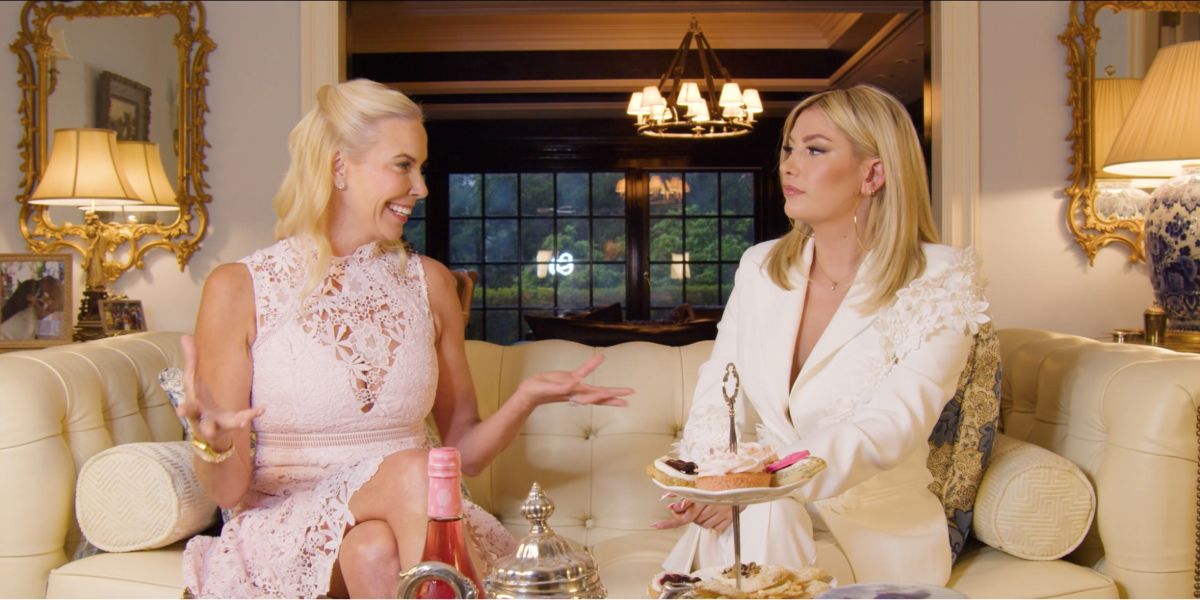By: Jeremy Murphy
Kerry Berlet never envisioned herself as a podcaster. With a Ph.D. in statistics, a teaching role at Columbia University, and nearly three decades of experience in media analytics, she was more accustomed to interpreting data sets than hosting emotionally charged interviews. But with Once Upon a Surgery, Berlet has found herself at the heart of one of the most human corners of the beauty industry: storytelling through transformation.
“The inspiration for the podcast was not only these stories that I have heard from patients through the years, but Tony’s personal passion for the Hallmark Channel,” Berlet says, referring to her husband, renowned plastic surgeon Dr. Anthony Berlet. “Each episode is almost like a Hallmark story because there’s a predictable happy ending. It’s heartwarming and inspiring.”
Berlet launched Once Upon a Surgery earlier this year and has already recorded ten episodes and built a following of over 30,000 subscribers on YouTube. The show features real-life patients who’ve undergone cosmetic or reconstructive surgery, many of whom were initially reluctant to share their experiences. “A lot of people don’t want to admit they’ve had plastic surgery,” Berlet acknowledges. “They want to maintain their air of natural perfection.”
But through her mix of warmth, intelligence, and lived experience—both as a patient and as a surgeon’s wife—Berlet creates an environment where guests open up. “I just tell them, ‘Look, it’s just me. We have tea. We’re just sitting on the couch at my home.’ And they forget the camera’s there,” she says. “It’s cathartic for them. It’s a relief to be able to talk about their experiences.”
Her guests’ stories range from the triumphant to the tragic patients botched by previous surgeons, victims of domestic violence, people living with the emotional burden of old scars or failed procedures. “Plastic surgery can really have such an impact on not only your outward appearance but also your inner confidence,” she says.
In one episode, Berlet interviewed a woman whose face was shattered in a car accident. “Every bone in her face was broken,” she recounts. “She had an inverted nose. Now she looks beautiful and is married with two children.” For Berlet, it’s these emotional arcs—the descent and rise—that make the stories so compelling. “It’s a transformation not just physically, but psychologically.”
Berlet’s own journey into this space is unconventional. She holds degrees from Dartmouth and Columbia and still teaches statistics at Columbia’s Teachers College. “I’ve had a day job working in magazines for over 27 years,” she explains. “But I’ve always been a curious person and fluent in small talk. Having this new situation where I’m interviewing people… it just felt very natural. I’m really loving it.”
Her comfort on camera isn’t accidental either. “I was on a reality show back in the day,” she laughs. “I’ve just always been open. I don’t mind if people know everything about me—probably more than most people are comfortable with.”
That openness is part of what makes her podcast resonate. She’s candid about her own aesthetic treatments and views plastic surgery as a form of self-care rather than vanity. “There’s a lot of negative connotations around plastic surgery, and I think a lot of it comes from bad surgery,” she says. “But good work whispers—it doesn’t shout.”
The podcast also addresses shifting social perceptions, including the rise of male plastic surgery and the cultural phenomenon known as “looksmaxxing.” “We had one guy talk about how he had his eyes and neck done,” she says. “It’s sort of a test and control situation-his brothers still have that same tired look. He doesn’t—because he had the work done.”
From rhinoplasties and facelifts to explants and scar revisions, Berlet sees the value in every procedure. “I find the rhinoplasties fascinating—it’s the center of your face,” she says. “But then there’s the Berlet Button—my husband’s signature belly button from tummy tucks. The results are insane.”
She speaks passionately about a woman who had scars removed from her face after surviving domestic abuse. “To my husband, it was a simple procedure. But to her, it was like being freed of the past,” she recalls. “It wasn’t just physical—it was emotional.”
Berlet also tackles topics like affordability and access, telling stories of people whose surgeries were paid for by generous friends or employers. “There was a woman who had a hole in her nose from skin cancer and had been botched by another plastic surgeon,” Berlet recalls. “Her boss was a friend of Dr. Berlet’s; knew he could help—and paid for her surgery out of the kindness of his heart. After living in hiding for 2 years, she went on to attend her son’s wedding and looked beautiful. You don’t have to live like that.”
While Once Upon a Surgery is still in its early days, Berlet envisions exciting growth on the horizon. “We’re going to expand the show to add in a second element, where we bring in Dr. Berlet and shift from stories to science, breaking down the artistical precision that goes into each transformation. And I think we’re ready for an episode where someone cries,” she says with a smile. “I mean, these are Hallmark endings—we should be crying!”
In an industry often dominated by before-and-after photos and superficial results, Kerry Berlet offers something deeper: a place for empathy, authenticity, and transformation. And it’s resonating.
“I think people just want to be seen,” she says. “They want to feel beautiful inside and out. and they want to inspire others who might be in a similar situation. If we can create a safe, welcoming space where we educate, connect, and uplift others through real stories, all while keeping it light and full of heart—then I know I’ve done my job.
Instagram @kerry111111


















